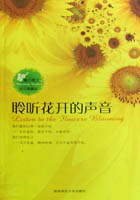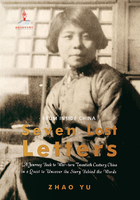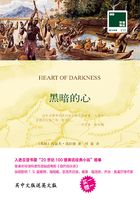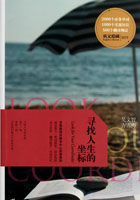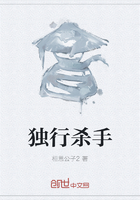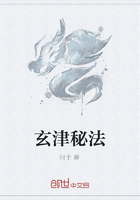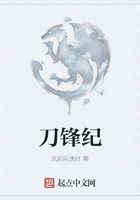At 5:30 pm on December 19, 1984, in the Great Hall of the People, China and the UK formally signed the Joint Declaration of the Government of the United Kingdom of Great Britain and Northern Ireland and the Government of the People's Republic of China on the Question of Hong Kong, more commonly known as the Sino-British Joint Declaration.
The signing of the declaration marked the closing of an era. The People's Republic of China would formally resume the exercise of sovereignty over Hong Kong on July 1, 1997, putting an end to one hundred years of national humiliation.
After the signing of the declaration, Deng Xiaoping said: "The success of the Sino-British negotiations was not because we who participated were particularly capable, but because our country is powerful. Weak countries have no diplomacy. We need to rely on our strength to make our voice heard."
He's right. If China had never gone through Reform and Opening Up, Chinese people would still be focusing their energies on a you-versus-me-versus-you class struggle. And if Deng Xiaoping and his fellow negotiators had not taken a hard line, what would have ever come of Hong Kong's return?
In May of 1985, at the United Nations General Assembly, the Chinese Ambassador to the UN delivered the heavy text of the Joint Declaration to the waiting hands of a UN official. The Chinese Ambassador was Ling Qing, the great-great grandson of none other than Lin Zexu.
History had served the world notice: China had finally avenged its past humiliations.
An Old Father's Warning to His Son
The Sino-British negotiations were an enormous national project; the size of China's negotiating team was similarly prodigious. At the top were Deng Xiaoping, foreign minister and State Council vice-premier Qian Qichen, and Hong Kong and Macau Affairs Office head Lu Ping. Below them were more than a thousand experts and workers from relevant government departments. I was not able to interview every one of them individually; likewise I have not been able to address every incident and individual involved with the Sino-UK negotiations, and even less able to provide a complete rendering of fifteen years of joint talks. I can only take the point of view of an interviewer and researcher, writing down for the reader's benefit my thoughts on the interviews I've performed, places I've visited, and materials I've collected.
Before I began this book, my impression was that, following the issuing of the Joint Declaration, everything else went off without a hitch, and that all that was left for China to do was to await the 1997 celebration of Hong Kong's return. That was entirely too naive of me; in reality, following the announcement of the declaration, the real struggle still lay ahead.
As stipulated in the Joint Declaration, on May 27, 1985, the two governments established the Sino-British Joint Liaison Group, to which each side contributed a senior representative of ambassadorial rank and four other representatives. Both sides were allowed to bring in experts and other staff to provide assistance as needed.
The four senior representatives on the Chinese side were Ambassador Ke Zaishuo, Ambassador Guo Fengmin, Ambassador Zhao Jihua, Ambassador Wang Guisheng, and Ambassador Wu Hongbo. Many other representatives participated later on in the talks, including Chen Zuo'er and Wang Weiyang (with Wang Weiyang also playing the role of official liaison between the two sides).
The five representatives on the British side were Ambassador D. C. Wilson, Ambassador R. J. T. McLaren, Ambassador A. C. Galsworthy, Ambassador H.L. Davies, and Ambassador Alan Paul (Paul would play the role of official liaison for the British side).
The liaison group was established according to principles laid down in the Joint Declaration, and began work on July 1, 1985, in Hong Kong. It would officially disband on January 31, 2000. Over the course of these fourteen years and seven months, the group moved between Beijing, London, and Hong Kong across the course of forty-seven separate meetings, fourteen of which were held in Beijing, fifteen in London, and eighteen at No. 28 Kennedy Road in Hong Kong.
The liaison group's tasks touched upon every aspect of the handover of Hong Kong's sovereignty, including law, economics, trade, shipping, communications, finance, aviation, culture, and sports. The group would eventually establish specialized sub-committees to resolve arrangements around defense, public safety, immigration and residency, construction of a new airport, a high court for the territory post-handover, the transfer of official files and government assets, and social welfare, among other issues. Both sides dispatched a number of domestic experts to participate in the talks, with every topic the subject of exhaustive discussion. Once consensus was reached, it was submitted to the full body of the liaison group for discussion, after which it became a binding bilateral agreement.
At the same time, another pressing joint project was underway: the drafting of the "Basic Law of the Hong Kong Special Administrative Region of the People's Republic of China" (commonly known as the "Basic Law" ), to be enacted following Hong Kong's return to China.
The Basic Law's function was to make specific, systemic, legal guidelines for the "One Country, Two Systems" paradigm. In April of 1985, the drafting committee for the Basic Law was established. The committee's thirty-six mainland and twenty-three Hong Kong members were divided across several working groups, tasked with drafting separate parts of the Basic Law's one hundred and sixty clauses. Lu Ping headed the group personally.

